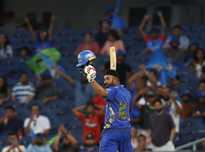
Nowadays, a person suffers from multiple Disorders and hence is started on multiple medications. So the timing of medications is very important for their effective outcome and safety.Few medications need to be taken on an empty stomach, like few thyroid medications, medications for gastritis, some of the anti-tubercular medications, some anti-diabetics, etc., which help in the absorption of medications into the blood.While some medications should be avoided on an empty stomach, such as antibiotics, vitamins, mineral supplements, etc., which might cause gastric irritation/GI intolerance (nausea, vomiting). And some medications taken after food cause enhanced absorption.For example: iron supplements and medicines like allopurinol (used for gout) are taken after food, as they help reduce the risk of nausea/vomiting.Hence, one should follow the instructions prescribed by the doctors very strictly, as some medications need to be taken on an empty stomach for effective benefit and safety.
Studies have found that people who get high-dose vitamin C drips (more than 30 g intravenously) have lower blood pressure, especially if their baseline readings are higher. That effect happens because vitamin C relaxes blood vessels. This is usually safe, but if you're fasting and not getting enough fluids and salts, it can make the effect stronger, which can make you feel faint or dizzy or have dangerously low blood pressure.Medical experts warn that IV glutathione, which is used to lighten skin or slow down aging, can cause sudden reactions like allergic reactions, low blood pressure, trouble breathing, or kidney damage. Reports to the FDA say that some patients felt dizzy, sick, or had low blood pressure just a few minutes after the infusion.Glutathione is very important for keeping the electrical balance in heart cells. Low levels are linked to problems with heart rhythm. So, if a patient is already fasting and their electrolytes are changing, and then they get a vasoactive drip, this could theoretically cause sudden low blood pressure and unstable heart rhythms, which could lead to cardiac arrest, though this is very rare.These IV treatments are not just beauty hacks, they work like strong medications. Taking them while fasting can shock your body and make your blood pressure drop suddenly or your heart rhythm go wrong. It might look safe, but it's dangerous if you don't take care of it. Always consult a qualified doctor before undergoing such infusions, your health is never worth the gamble.
Newer articles
Older articles
 Daren Sammy Fined, Handed Demerit Point for Umpire Criticism After Test Match Comments
Daren Sammy Fined, Handed Demerit Point for Umpire Criticism After Test Match Comments
 Gavaskar Calls for Yadav's Inclusion, Questions Middle Order After India's Test Defeat
Gavaskar Calls for Yadav's Inclusion, Questions Middle Order After India's Test Defeat
 Decoding Your Health: Spotting 5 Prediabetes Warning Signs Before a Blood Test
Decoding Your Health: Spotting 5 Prediabetes Warning Signs Before a Blood Test
 X Corp. Cracks Down: Half a Million Indian Accounts Suspended for Policy Breaches
X Corp. Cracks Down: Half a Million Indian Accounts Suspended for Policy Breaches
 Headline:
Early Warning Signs: 5 Heart Attack Symptoms to Watch Out For Weeks in Advance
Headline:
Early Warning Signs: 5 Heart Attack Symptoms to Watch Out For Weeks in Advance
 Facial Icing: Benefits, Risks, and Safe Application of This Viral Beauty Trend
Facial Icing: Benefits, Risks, and Safe Application of This Viral Beauty Trend
 Chess Sensation Praggnanandhaa Joins Magnus Carlsen's Team Liquid for Esports World Cup
Chess Sensation Praggnanandhaa Joins Magnus Carlsen's Team Liquid for Esports World Cup
 Mastering JPG to PDF Conversion: A Graphic Designer's Guide to Quality and Efficiency
Mastering JPG to PDF Conversion: A Graphic Designer's Guide to Quality and Efficiency
 MI New York's Tajinder Dhillon Shines: From IPL Benchwarmer to MLC Star
MI New York's Tajinder Dhillon Shines: From IPL Benchwarmer to MLC Star
 Akmal Blasts PCB's Interim Coach Choice: Ex-Cricketer Questions Logic Behind Mahmood Appointment
Akmal Blasts PCB's Interim Coach Choice: Ex-Cricketer Questions Logic Behind Mahmood Appointment